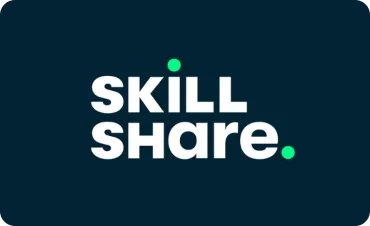When you enroll through our links, we may earn a small commission—at no extra cost to you. This helps keep our platform free and inspires us to add more value.

C# Advanced Programming Techniques
Unlock creativity with Skillshare! Learn acrylic painting, AI writing, graphic design, and photography.

This Course Includes
 skillshare
skillshare 0 (0 reviews )
0 (0 reviews ) 4 hours 4 minutes
4 hours 4 minutes  english
english Online - Self Paced
Online - Self Paced course
course SkillShare
SkillShare
About C# Advanced Programming Techniques
C# Advanced Introduction
C# Advanced The Setup
C# Advanced Logical and Bitwise
C# Advanced Const vs Read Only
C# Advanced Scope and Visibility
C# Advanced Unsafe
C# Advanced Generic Collections
C# Advanced Explicit vs Implicit Conversions
C# Advanced Expression bodied functions
C# Advanced Operator precedence
C# Advanced Method entry and exit points
C# Advanced Generic parameter constraints
C# Advanced Open and Closed generic types
C# Advanced Out parameters and discard
C# Advanced Preprocessor directives
C# Advanced Overload indexers
C# Advanced Common predefined attributes
C# Advanced Read only autoproperties
C# Advanced Syntax for literals
C# Advanced Returning read only references from functions
C# Advanced Method without a name
C# Advanced LINQ
C# Advanced String interpolation
C# Advanced Value and reference type assignment
C# Advanced Null propagation operator
C# Advanced Clojures and lambda expressions
C# Advanced Foreach and enumerators
C# Advanced Static vs instance members
C# Advanced Type inference
C# Advanced Local functions
C# Advanced Custom event accessors
C# Advanced User defined conversions
C# Advanced The End
What You Will Learn?
- Welcome,.
- This is the continuation of my previous C# class where more advanced programming techiniques are discussed and shown how to use the language..
- The C# programming language was designed by Anders Hejlsberg from Microsoft in 2000 and was later approved as an international standard by Ecma (ECMA-334) in 2002 and ISO/IEC (ISO/IEC 23270) in 2003. Microsoft introduced C# along with .NET Framework and Visual Studio, both of which were closed-source. At the time, Microsoft had no open-source products. Four years later, in 2004, a free and open-source project called Mono began, providing a cross-platform compiler and runtime environment for the C# programming language. A decade later, Microsoft released Visual Studio Code (code editor), Roslyn (compiler), and the unified .NET platform (software framework),all of which support C# and are free, open-source, and cross-platform. Mono also joined Microsoft but was not merged into .NET.As of 2021, the most recent version of the language is C# 10.0, which was released in 2021 in .NET 6.0..
- This course is going to build up the knowledge for you to create your own C# applications with ease..
- Happy Coding!.